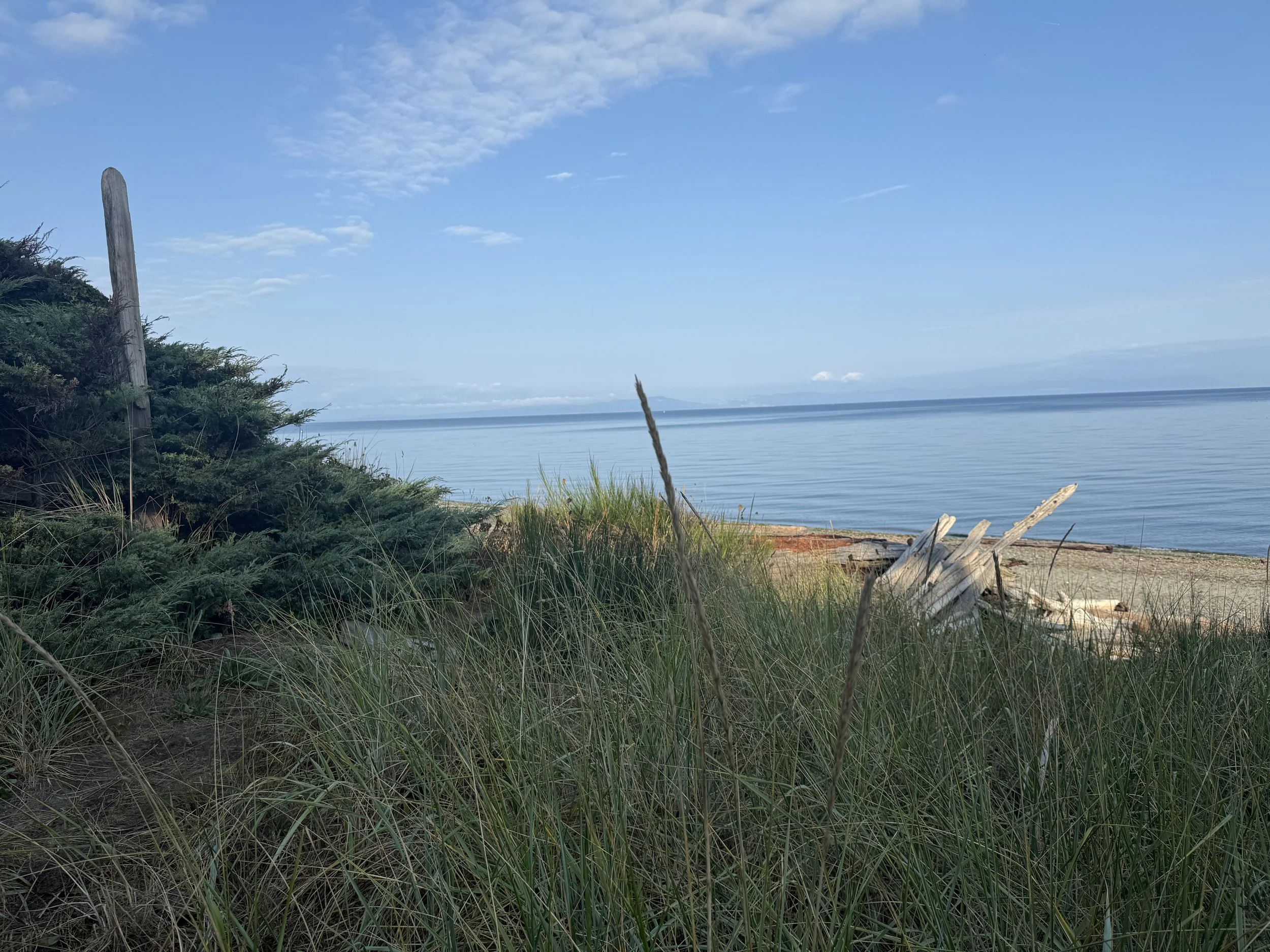My Research:
PhD Student - University of British Columbia - School of Community & Regional Planning (SCARP)
In my doctoral research I explore questions around coastal climate adaptation and transboundary water governance along British Columbia’s south-coastal watersheds. It asks:
How can participatory, community-led research address the barriers to legal pluralism and the implementation of UNDRIP in water governance and climate decision-making in British Columbia?
How can Indigenous-led nature-based and alternative coastal adaptation projects (e.g. living dikes, multi-functional dikes, dam removal, blue-green infrastructure) support riparian habitat restoration and fish?
How can ecoacoustics and active listening generate new forms of evidence to support Indigenous laws, coastal resilience and the Rights of Nature movement?
I ask these questions in order to address: Threats to wild salmon and fish | Coastal and watershed adaptation | Watershed health | Transboundary decision-making processes | Regional governance and coordination challenges | Barriers to legal pluralism | Complex system dynamics | Role of ecoacoustics and bioacoustics in transdisciplinary communications | Public education | Legal Rights of Nature
Recent presentations
(June 2023) “Values that shape coastal adaptation” Coastal Zone Canada Conference | Victoria, BC
(October 2023) “The values in your work” Adaptation Futures Conference | Montreal, QC
(October 2022) Earth System Governance Conference, Theme: ‘Governing accelerated transitions: justice, creativity, and power in a transforming world’ | Toronto, ONT
(Paper Presentation) ‘Climate planning from a fish's perspective’ for panel discussion on 'People and communities in local environmental governance’ as part of ESG’s Adaptiveness & Reflexivity session conference theme. You can find my abstract here.
(Virtual Parallel Panels & Innovative Session) ‘Getting to the root of adaptation: values that shape the built environment’ - This session asked: “What values live in your adaptation research and work?”
(October 2022) National Adaptation Forum | Baltimore, MD
(Presenter) Concurrent Session 2 - Trainings - ’Getting to the root of adaptation: values that shape our work’
(Workshop presentation & Training) "Putting values in climate adaptation' - Workshop with PICS Researcher-in-Residence, Vanessa Lueck and MRM Student, Tira Okamoto
Key topics of interest: Estuary science, Indigenous-led habitat restoration & coastal planning, fisheries governance, knowledge translation & policy engagement strategies, cumulative effects, ecosystem restoration, legislative frameworks, environmental law, role of art in community planning+++

